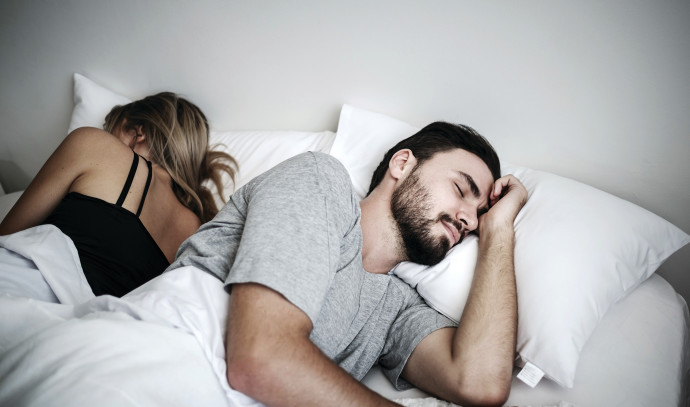The patient is not aware that he is waking up, he moves and starts breathing normally until the next breath stop. There are people who have dozens of breathing breaks at night and therefore their sleep is not effective, they wake up in the morning sometimes after nine hours of sleep at night and are more tired than when they went to sleep. However, it is important to treat the problem because it is indeed life-threatening. People who suffer from sleep apnea are the same people who can fall asleep at the wheel, fall asleep while sitting, people who function less well and are more exposed to heart disease, blood pressure and problems of this kind.
There are several treatments for sleep apnea. The best and most effective treatment is the CPAP device. It’s a mask that the person goes to sleep and puts on the face, which can come as a mask over the nose and mouth or nostrils, and it just lets in air under stronger pressure. Another option is a dental device – there are dentists who know how to make a device that slightly pulls the lower jaw forward and slightly stretches the airways.
In addition, since this always happens when lying on the back, I suggest sewing a small pocket in the back of the pajamas, and putting a tennis ball in there. It forces you to lie on your side. This is the simplest method. Another option available to you is laser surgery where the tongue is usually cut or the opening of the airway is widened, so that even when the tongue falls back a little during sleep, it does not block the airways. My recommendation is the CPAP.
I am 42 years old, and about a month after October 7 and the start of the fighting, I started to feel difficulty swallowing, especially liquids. At that time I experienced great stress and anxiety, and one clear day I felt that I could not drink. Swallowing pills or delicacies is also difficult for me, solids a little less. I did a swallowing test – everything came out normal and on the recommendation of the doctors I started taking ciprofloxacin. At the moment I am not experiencing anxiety, it has decreased significantly, but the difficulty in swallowing remains as it was. What could be the cause of the problem?
In light of your situation I suggest two things. The first is to go to a neurologist who will check your reflexes, the swallowing reflex and the cranial nerves. The nerves that are related to the movements of the tongue and swallowing are parts of the cranial nerves, so they need to be checked. That’s why I also suggest that a neurologist see you. The second thing is to go do a barium swallow test. In the test you can see how the amount of barium, of the contrast material, goes up and down and if it gets stuck, there is the diagnosis.
In addition, it is also possible to perform a pressure test in the esophagus. As for the difficulty in swallowing pills, there are people in their 60s and 70s who are unable to swallow pills at all, since they were children. The source can be psychological and it can be physiological. Have you ever drank and choked? Did you think you were suffocating? Maybe it left some particular trauma. Food is a lump, a solid lump falls more easily than a liquid, liquid has no mass, it is fluid. Many people who have problems swallowing liquids are given jelly, cheese, yogurt, they swallow it more easily.
Also, it should not be dismissed because it is possible that the source of the problem is indeed psychological. But it is important to emphasize that a diagnosis of something psychological is the last diagnosis. First you have to rule out all the other things. In the bottom line, the problem you are suffering from can have many reasons, and indeed the psychological reason is also a reason that must be taken into account – but I repeat, in last place in the differential diagnosis.
